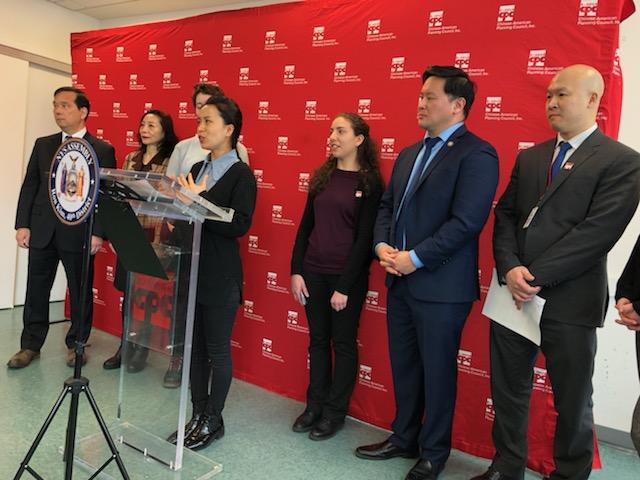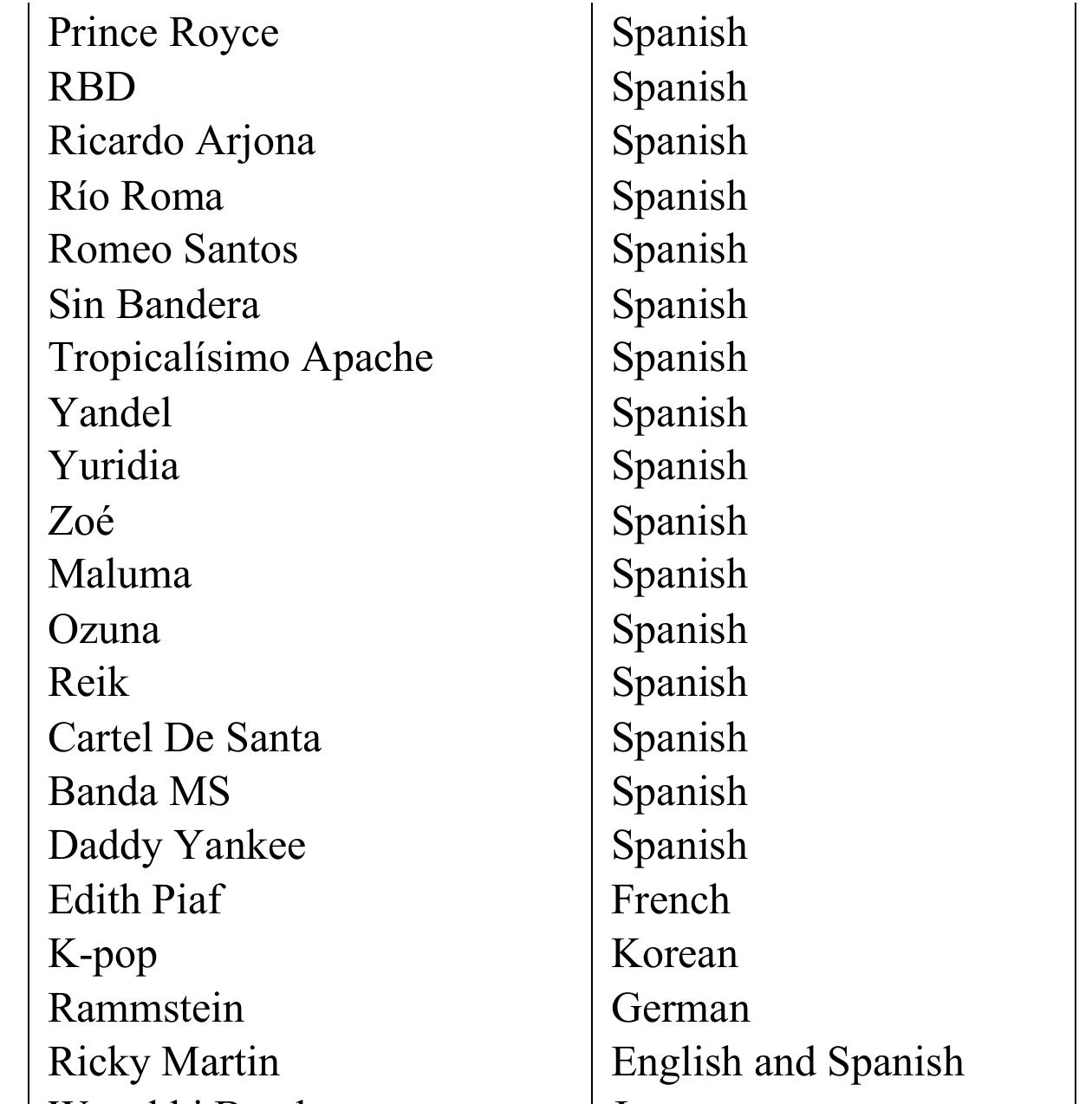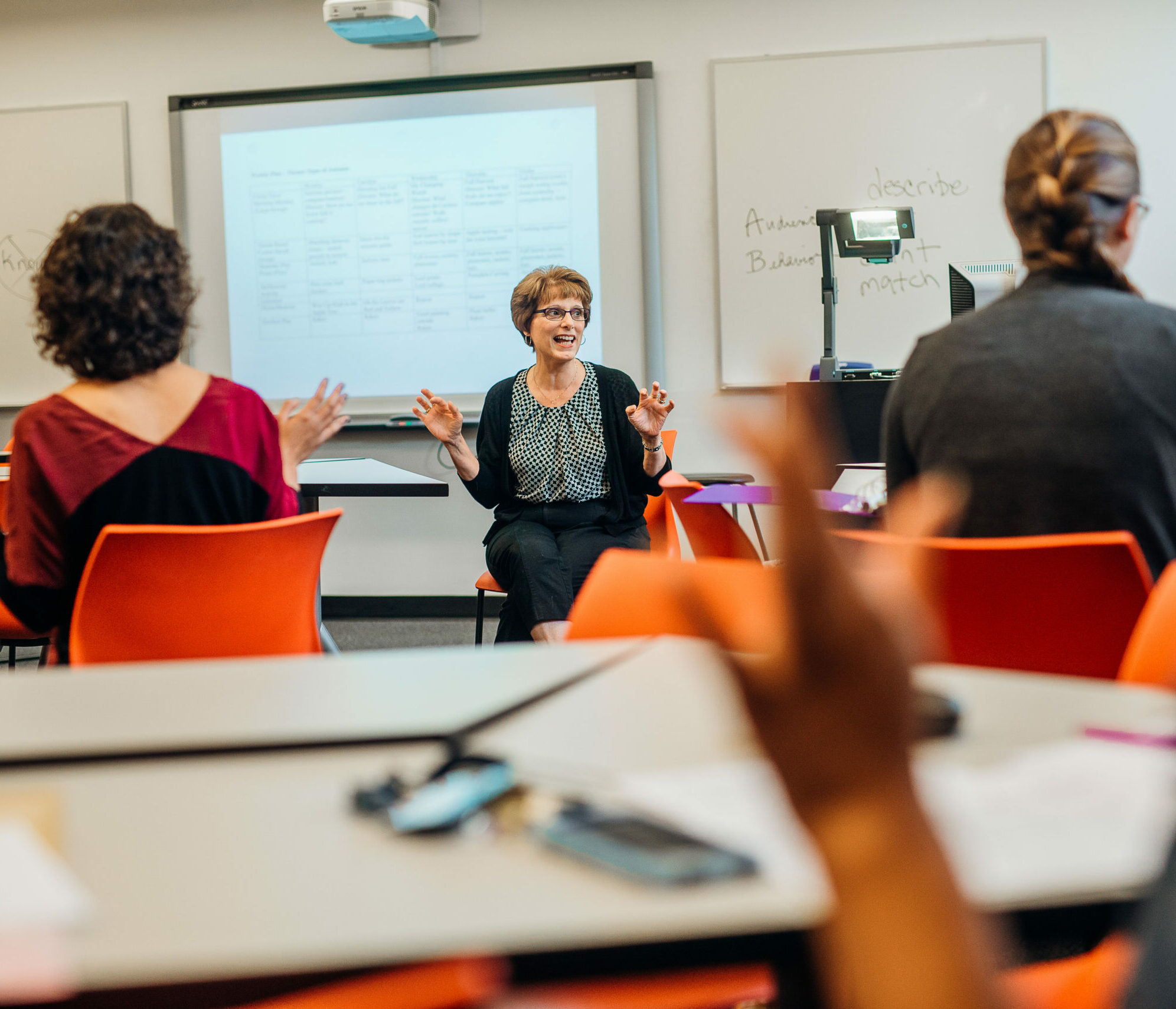
Advocates Call for Full Funding of Adult Literacy Education Programs in New York

State Assemblyman Ron Kim, representatives from Senator Jessica Ramos’s office, and Lena Cohen from United Neighborhood Houses joined CPC on February 20th to advocate for full funding of Adult Literacy Education (ALE) programs in New York.
CPC’s Adult Literacy Program Director, Jeff Lau, spoke at CPC Queens Community Center about the impacts of the program on more than 500 English language learners and called on the State of New York to continue supporting adult literacy classes and the Flushing community. He also discussed how repeated underfunding affects the flow of programming and sets community members back. “Single-year investments and low-reimbursement rates mean we are not able to provide staffing for the wrap around services and counseling that students need outside of the classroom. More importantly, students’ lives will be put on hold as people wait to achieve a high school equivalency, enter the workforce, assist in their children’s homework, or become a U.S. citizen,” said Jeff.
One of the attendees who spoke was Lilian Kong, a former student of CPC’s literacy program, who emphasized the positive impact and vital importance of the ALE program in her own life.
Mollie Korewa, a CPC adult literacy instructor, said, “Students in our program have many reasons to learn English: helping children with homework, communicating with doctors, going to government offices when necessary, continuing their education, becoming citizens, and of course, finding good jobs to provide for their families. Just a few months of English class can have a huge impact on students’ lives.”
In her class, there have been discussions on tenants’ rights, workers’ rights, the American education system, accessing public transportation, and much more.
There are an estimated 3.5 million adults without a high school diploma, English proficiency, or both in New York, but barely 3% of those in need of language development skills are able to enroll in State-funded classes. Organizations such as United Neighborhood Houses and CPC have sought to address this deficiency by urging the inclusion of $25 million for ALE in the annual state budget, a modest investment within the overall New York State budget, which exceeded $170 billion in the most recent fiscal year, that they say would bring outsize returns from a better educated, empowered and far more engaged workforce.
To learn more about CPC’s adult literacy program, visit the program page here.
SDGs, Targets, and Indicators Analysis
1. Which SDGs are addressed or connected to the issues highlighted in the article?
- SDG 4: Quality Education
- SDG 8: Decent Work and Economic Growth
- SDG 10: Reduced Inequalities
The article discusses the importance of adult literacy education programs in New York, which directly relates to SDG 4, which aims to ensure inclusive and equitable quality education and promote lifelong learning opportunities for all. It also touches upon SDG 8, as the article highlights how adult literacy education can help individuals find good jobs to provide for their families. Additionally, the article mentions the issue of limited access to language development skills classes, which is a form of inequality addressed by SDG 10.
2. What specific targets under those SDGs can be identified based on the article’s content?
- Target 4.6: By 2030, ensure that all youth and a substantial proportion of adults, both men and women, achieve literacy and numeracy.
- Target 8.6: By 2020, substantially reduce the proportion of youth not in employment, education or training.
- Target 10.3: Ensure equal opportunity and reduce inequalities of outcome, including by eliminating discriminatory laws, policies, and practices and promoting appropriate legislation, policies, and action in this regard.
The article emphasizes the need for full funding of adult literacy education programs to ensure that adults, both men and women, achieve literacy. It also highlights how access to education and language development skills can contribute to reducing the proportion of adults not in employment or training. Furthermore, the article discusses the inequality in access to language development skills classes, which aligns with the target of reducing inequalities of outcome.
3. Are there any indicators mentioned or implied in the article that can be used to measure progress towards the identified targets?
Yes, the article implies the following indicators:
- Percentage of adults who achieve literacy and numeracy
- Proportion of youth not in employment, education, or training
- Access to language development skills classes for adults
The article mentions that there are an estimated 3.5 million adults without a high school diploma or English proficiency in New York, and only 3% of those in need of language development skills are able to enroll in State-funded classes. These figures can be used as indicators to measure progress towards the targets mentioned above.
4. SDGs, Targets, and Indicators Table
| SDGs | Targets | Indicators |
|---|---|---|
| SDG 4: Quality Education | Target 4.6: By 2030, ensure that all youth and a substantial proportion of adults, both men and women, achieve literacy and numeracy. | Percentage of adults who achieve literacy and numeracy |
| SDG 8: Decent Work and Economic Growth | Target 8.6: By 2020, substantially reduce the proportion of youth not in employment, education or training. | Proportion of youth not in employment, education, or training |
| Target 10.3: Ensure equal opportunity and reduce inequalities of outcome, including by eliminating discriminatory laws, policies, and practices and promoting appropriate legislation, policies, and action in this regard. | Access to language development skills classes for adults |
Copyright: Dive into this article, curated with care by SDG Investors Inc. Our advanced AI technology searches through vast amounts of data to spotlight how we are all moving forward with the Sustainable Development Goals. While we own the rights to this content, we invite you to share it to help spread knowledge and spark action on the SDGs.
Fuente: cpc-nyc.org

Join us, as fellow seekers of change, on a transformative journey at https://sdgtalks.ai/welcome, where you can become a member and actively contribute to shaping a brighter future.






